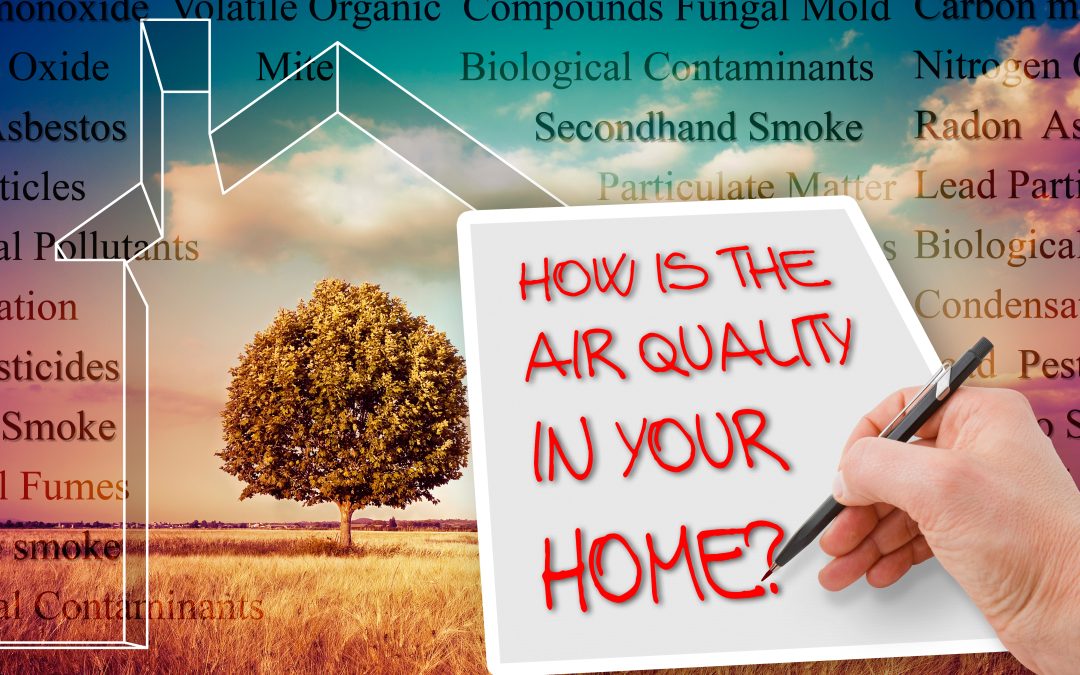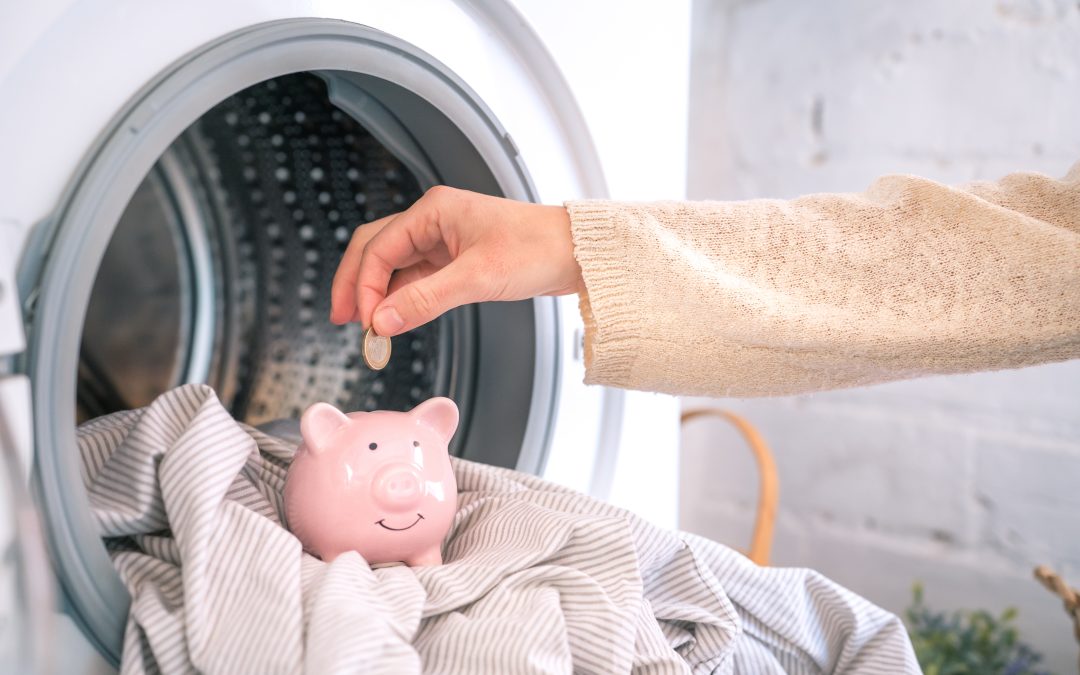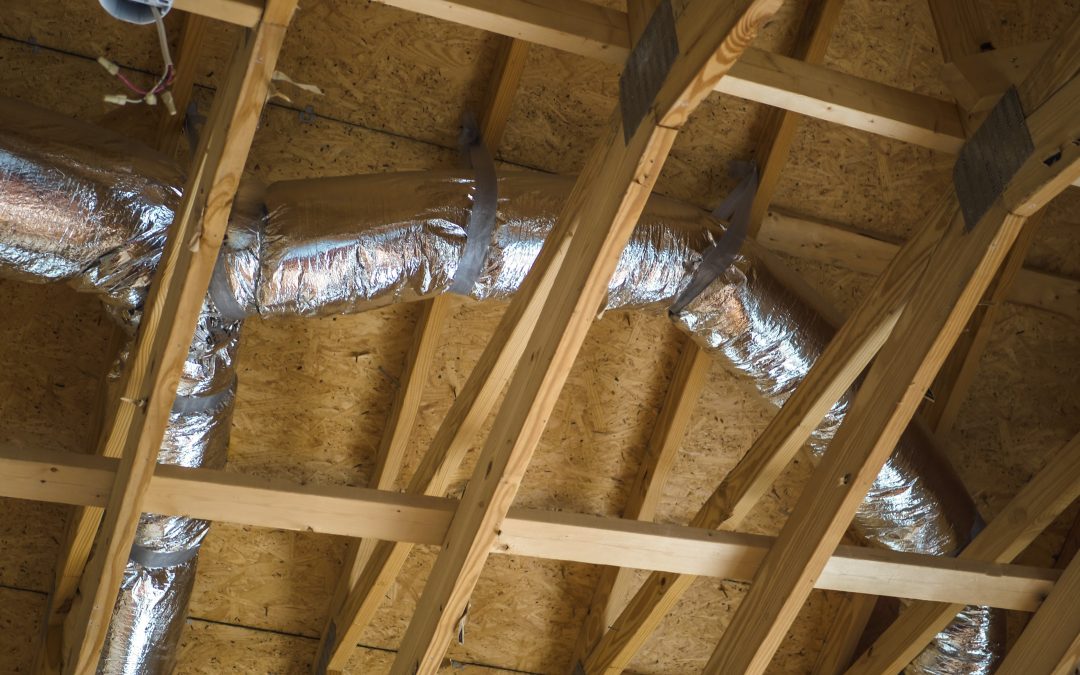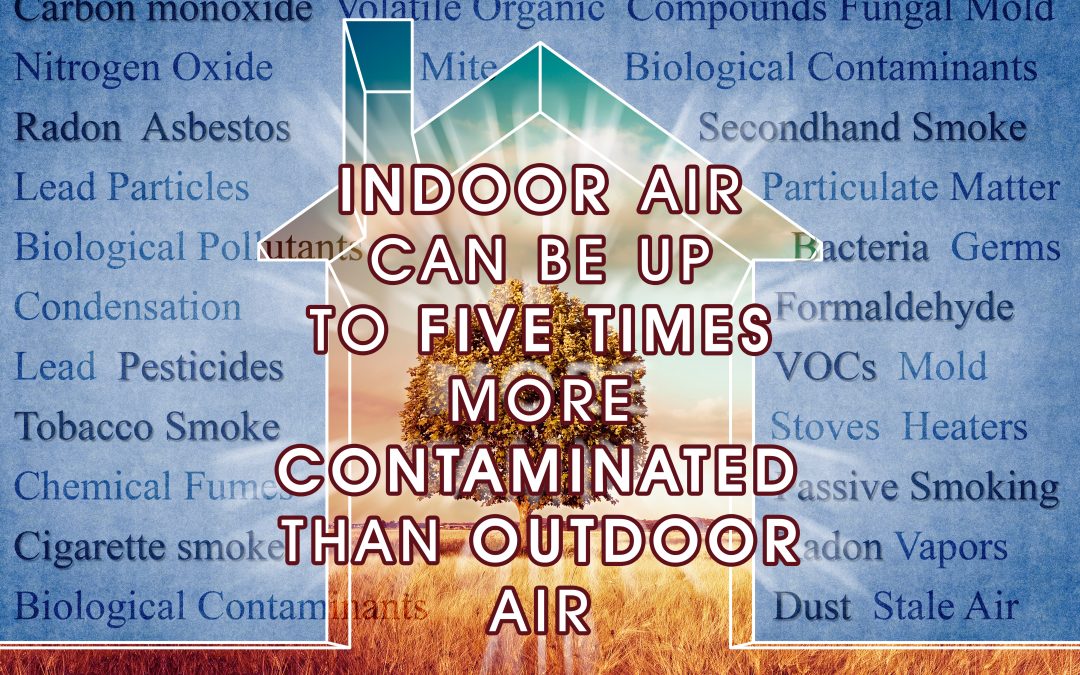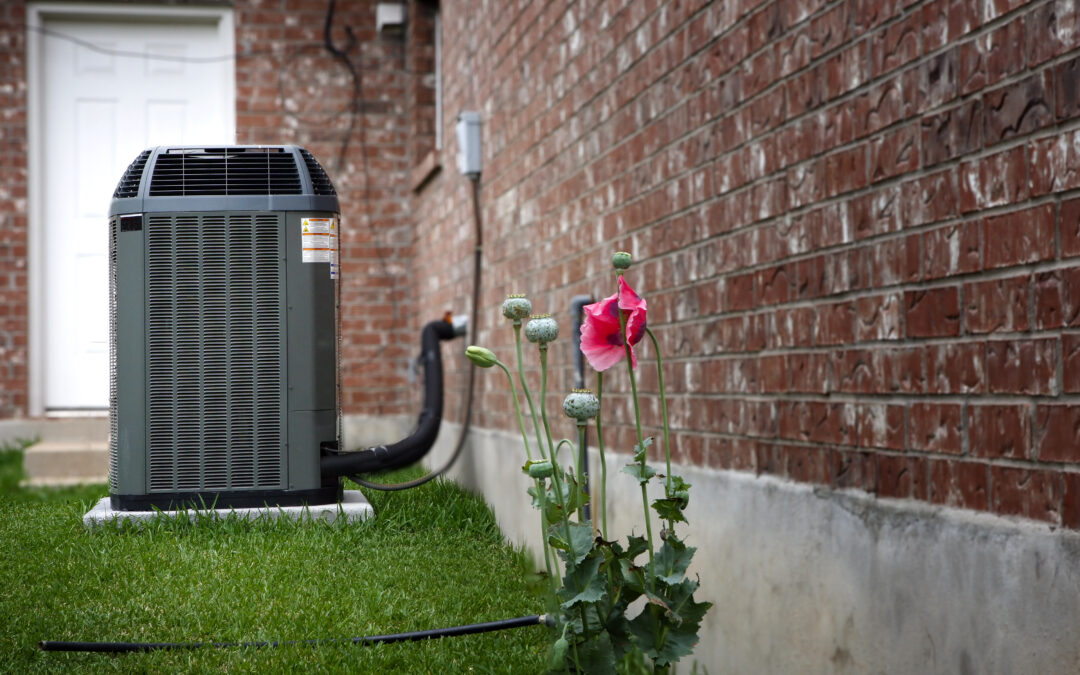
by Sabrina Cox | Aug 9, 2023 | Uncategorized
We have mentioned in our previous blog posts the importance of keeping the air inside your home clean and purified. According to experts, just one cubic foot of air can have more than 30 million pollutants including dust, mold spores, and allergens. Breathing in these irritants can make you sick, especially in children and the elderly. They can also trigger asthma, allergies and a variety of different respiratory problems. As an HVAC company, we understand how critical having clean air inside the home is, which is why we use air purifying products made by AprilAire.
Before we discuss how you can purify your indoor air, we want to explain why you should. The experts at AprilAire have done extensive research and come up with 8 basic benefits of having clean indoor air:
- Reduce illness – Removing airborne contaminants from the home allows you and your family to breathe easily.
- Eliminate pests – Pests thrive in homes with dust, dirt, and mold, which can be resolved with improved indoor air quality.
- Alleviate allergies – By removing allergies from your home, your entire household will breathe better and not suffer as much from seasonal allergies.
- Make your home more pet friendly – All pets produce dander, meaning there are no hypoallergenic pets. But with a purified home, most all dander and pet debris will be removed from the air.
- Better sleep – Because your indoor air is clean and purified, you will no longer be affected by the sneezing, and will get better sleep.
- Energy efficiency – Managing humidity in the summer or winter can drastically reduce heating and cooling costs.
- Increase home value – A healthy home is less likely to be damaged by pests or humidity, and may increase property value.
- Lower stress levels – In addition to better health, sleep, and energy efficiency, a healthy home requires less cleaning time. And less cleaning means less stress.
AprilAire offers a variety of products that will improve the quality of your indoor air:
Whole-House Humidifiers
In Texas, we understand that humidity is something we will always have to live with. But did you know that humidity can cause damage to your home?
AprilAire whole-house humidifiers balance your home’s humidity to help improve sleep and skin, enhance productivity, and keep you protected against airborne viruses. Additionally, AprilAire humidifiers help preserve your home from cracking and warping due to low humidity levels.
Whole-House Dehumidifiers
If your home is full of humidity, then the air is moist. And moist air is the perfect breeding ground for mold and fungus. AprilAire dehumidifiers balance your home’s humidity by reducing mold- and mildew-causing moisture, keeping you protected against the harmful effects of allergy and asthma symptoms.
Temperature Control
AprilAire offers a number of different thermostats that are compatible with a wide range of heating and cooling systems. Each different thermostat allows you to control and adjust your air’s purity, humidity, and freshness as well as temperature. You can also control this system from your smartphone. This gives you the ability to have greater control over the amount of energy you are using, and will cause your monthly bills to go down.
Radon Test and Mitigation Fan
Radon is an odorless, invisible, radioactive gas naturally released from rocks, soil, and water. Radon can get into homes and buildings through small cracks or holes and build up in the air. Radon is the #1 cause of lung cancer in nonsmokers and the only way to know if you’re being exposed in your home is to test.
To mitigate the effects of radon, AprilAire Radon control professionals can install products designed to redirect harmful radon gas out and away from your home.
Zone Control
A major problem that homeowners face is when certain rooms or areas of the home do not cool or heat as well as they should, causing different spaces to be different temperatures. By using AprilAire zoning control devices, you can control the temperature in different parts of the house, independent of the temperature in other rooms or zones. This not only gives you more control over the temperature in your home, it also lowers your energy consumption which saves you money.
If you think AprilAire products are right for your home or have any questions, give the experts at JW East Mechanical a call!

by Sabrina Cox | Jul 10, 2023 | Uncategorized
Making your home energy efficient and saving money are top priorities for homeowners. And a good way to save money on monthly bills is to cut down on your energy consumption. But aside from turning off the lights when you leave the room, knowing exactly what to do can be difficult. Below is a list of the top energy wasters in your home. By identifying what they are, you will be able to cut down your energy usage and save money!
Windows and doors
Most of us don’t think of our windows and doors as energy-suckers, but they are. And this is especially true if they are not properly sealed because cooled or heated air from inside the home is escaping outside. This heat loss in the winter and heat gain in the summer causes us to rely more heavily on our air conditioners and heaters to reach a comfortable temperature. And that excessive use will make your bills sky-high.
According to experts, your heating system works hard to bring your home to the set temperature. If there are leaks in your doors or windows, your HVAC system has to work a lot harder because the heated or cooled air is going outside and not staying in your home. By fixing all open cracks and making sure your doors and windows are properly sealed, you will not have to use your HVAC system as often.. And that will make your home more energy efficient which will in turn lower your monthly bills.
Many homeowners incorrectly assume that if they have drafty windows, they need to have replacement windows installed, but that’s not really the case. The truth is, replacement windows will improve your home’s comfort and energy efficiency, but they don’t always get rid of drafts. When it comes to windows and doors, many times the gap between the framed window opening and the frame of the window, called the shim space, is the culprit. You can’t see the “shim space” with the naked eye, but you can feel the effects of an open shim space when it’s cold or hot outside. Chilly or warm outside air will find its way around the exterior trim into the shim space, and will go directly into your living space. Because of this, it is important to have a licensed HVAC technician thoroughly inspect all doors and windows.
Old appliances
Older appliances like washing machines, dryers, dishwashers, and refrigerators waste a lot of energy. If any of these items in your home are more than 12 years old, replacing them is your best option for running a more efficient and inexpensive household.
For example, modern, energy efficient front-loading washing machines can save you up to 85% on your energy costs and use up to 75% less water. So even though you might spend a little more on the purchase of your new machine, the energy efficient model will likely save you hundreds of dollars each year. And if you upgrade all your appliances to energy efficient models, the savings will really start to add up.
Small loads
We already mentioned that washing machines, dryers, and dishwashers account for a significant amount of energy usage. Because they use so much water and energy, it is important to run them only when they are full. This keeps them from constantly running. If you only run them when they are full you will be surprised at the amount of money you can save!
Vampires
No, we’re not talking about the “Twilight” series. We’re referring to all those appliances you keep plugged in and running even when they’re not in use. They might seem insignificant individually, but an old alarm clock in a rarely-used room, a video game console you haven’t fired up in months, a toaster oven with a clock on it, or your laptop charger plugged in even though your laptop is already charged — those “vampires” add up to a decent chunk of charges on your electric bill. Unplug them, and watch your expenses go down.
Air conditioner/Furnace
Your air conditioner and furnace are two of the largest systems in your home, and keeping them maintained and in proper working condition is very important. Not doing so will drive up your energy costs. By having each system inspected annually, you are being proactive about discovering and fixing all problems before they get out of hand, waste excess energy, and cost you thousands of dollars to fix.
By making a few small changes to your household, you will be surprised by the amount of money you’ll end up saving each month. If you have already made some changes and not seen any savings, call JW East Mechanical. Our experts will inspect your system inside and out to make sure it is running in optimal condition!

by Sabrina Cox | Jun 8, 2023 | Uncategorized
Air ducts are a system of hollow tubes that carry cooled air throughout your home. They are located in your ceiling, walls, and floors and are arguably one of the most important parts of your air conditioning system because without them, the cooled air would have nowhere to go. Because they play such a large role, it’s important to take care of them and keep them in good shape. Read on to learn about the problems associated with leaky air ducts so you can prevent these issues from happening to you.
Higher monthly bills
According to experts, many things can cause an air duct to tear or leak. Usually an indicator of a leak is your monthly bill. When there is a leak anywhere in the air duct line it causes the cooled air that is going through the line to escape into the attic instead of its intended destination. You are basically paying lots of money to cool your attic, which makes no sense at all. Because cool air is not reaching the living portion of your home, your AC unit is constantly running in an attempt to cool the rooms below. And constant use of your AC system means you are using tremendous amounts of energy, which is something you will pay for every month. The Department of Energy says that a leak in your air duct causes your system to use 30% more energy, and that’s a lot!
Creates pressure inside the home
Leaky supply air ducts create what is called negative pressure, which means that outside air is being pulled inside your home. Negative pressure is dangerous and can cause severe health problems.
The Department of Energy says that in the summertime when your air conditioner has cooled the inside walls, warm moist outdoor air is sucked into the house through cracks in walls and around windows and doors. When this moist air hits inside chilled walls, it can condense into water and cause mold and mildew. Breathing in mold and mildew can cause serious long-term health effects and can be dangerous for your whole family, especially children and the elderly.
Negative pressure in the home can also create back drafting dangers. Back drafting is when vented appliances like dryers and fireplaces release fumes that should be going outside into your home. Fireplaces and dryers produce hazardous chemicals such as carbon monoxide but are designed to push these chemicals outside the home. If you have a leak in your air duct, the pressure will draw the air into your home and contaminate the air that you are breathing.
Causes hot and cold spots
Has there ever been a time when you went into a room and it felt like the air conditioner wasn’t on at all, and then went into another room and it was freezing cold? If the answer is yes, chances are there is a leak somewhere in one of your air ducts. Having a tear in a duct that leads to one room will cause all the cooled air to spill out of the line before it can enter the designated room.
If you have a leak in your system it causes the CFM’s, or the measurement of the velocity of the air as it flows in or out of a room, to go down. The uneven flow of air creates pressure differences which is why some rooms will get really cold and some will get really hot. All rooms should be basically the same temperature if the AC system is running correctly, and if not, then something is wrong.
Makes your home dirty!
Who wants to do extra house cleaning? We sure don’t, and we’re guessing you don’t either! And if you have a leaky air duct, you will be cleaning all the time. The holes inside the duct line will suck up dust, dirt, and other contaminants that are inside your home. After they have been sucked up through the holes, they get blown out through the air vents that are in each of your rooms. This not only causes your home to get covered in dirt and bacteria, but it also creates problems with the quality of air that you and your family breathe.
Now that you know about the problems associated with leaky air ducts, the next question is how do they tear and when should they be replaced?
Many times duct lines are torn during the installation process. If you have someone installing them who is not properly trained, they may cause a small tear. Rodents and pests are a big cause of torn lines. When it’s really hot or really cold outside they will chew up the line to try and get inside. To prevent animals from getting inside, it’s important to have your home, especially your attic, rodent proofed. Being mindful of pests is really important.
While there are ways to patch up a duct line, we recommend having the whole line replaced instead of patching one hole at a time. Patching the line still causes the system to work harder, which will still increase energy bills to a certain degree. Also, there are parts of the duct line that are hard to see and typically if there is a tear you can see, there is probably a tear somewhere you can’t see. The best thing to do is replace the whole line to ensure the problem is completely addressed.
As you can see, duct lines play an important role in your air conditioning system. Routine maintenance and checkups can keep your system running more efficiently and can save you from having larger, more expensive problems in the long run. Our technicians are trained to recognize even the smallest problem in your AC system, and fixing those problems while they are small is a lot better than waiting until they get out of hand! Give us a call today.

by Sabrina Cox | May 4, 2023 | Uncategorized
Sneezing, itchy eyes, runny nose, headache can only mean one thing: allergy season is upon us. And it seems that no matter how much we clean our house and wash our hands, there’s nothing we can do to escape the wrath of allergy season. Or is there?
When most of us think of allergies we think of pollen and ragweed, but there are plenty of things that give us those sinus headaches that come from inside our home. Recognizing allergens and taking the proper steps to eliminate them are an important part of home maintenance and extremely necessary for the health of your entire family. Read on to learn about allergens inside the home and what you can do to make sure they stay away.
Before we learn how make our home allergen free, let’s first take a look at the different allergens that contaminate our home:
Dust Mites: These tiny little creatures can be found all over the home and over 20 million Americans are allergic to them. They feed off of dead skin from humans and pets and are commonly found in carpeting, beds, and furniture. They are especially bad in Houston because they love our hot and humid weather and are unable to survive in colder, drier places.
Mold: High humidity and moisture are two of mold’s favorite things, again making Houston an optimal spot for mold growth. When you mix humid air, like the air outside, with cool air-conditioned air inside your home, you get condensation. The condensation then causes mold to grow. Mold is commonly seen growing on walls, especially in the bathroom and kitchen. Breathing in mold spores causes a variety of allergic reactions and can be dangerous to your health.
Mildew: If you have mold, you are going to have mildew. It is usually black in color and grows on walls, ceilings, and is commonly seen in the bathroom. Like mold, it thrives in hot, humid, and damp places.
Pet dander: While we love our pets and consider them part of our family, there are parts of them that we can be extremely allergic to. Pet dander is dead skin that all dogs and cats shed that gets on everything. It can even be found in homes without pets because it is easily transferred through the skin and clothes of visitors who do have them.
Rodents and bugs: Cockroaches are a common cause of allergies in the home and can even cause asthma in some people. Their saliva, feces, urine, and even their decomposing bodies all become mixed in with the air you breathe and can cause severe allergic reactions. Rodents like rats and mice are also allergy triggers because they leave behind contaminants through their skin, saliva, and urine.
Because most allergens are floating in the air we breathe, the easiest way to get rid of them is to purify and clean the air inside your home.
HVAC experts have determined that the air you breathe inside a house can be up to five times worse than the air you breathe outside, because inside the house is nothing but re-circulated air that you breathe in over and over again. Houston has some of the worst air in the United States because of all the pollen and refineries, and is the reason many Houstonians suffer from allergies throughout the year.
The best way to make sure the air inside your home is clean and contaminant free is to install filters inside your home that purify your air. Around 98% of the homes in Houston are built with a 1-inch box filter that is located in the wall or ceiling. While having a small filter is better than having none at all, it is still not efficient enough to clean your air the way you need it to. Box filters only filter out about 20% of dust and 5% of mold, mildew, and other bacteria.
Media Filters are an increased filtration system that can be installed to any home. They draw air in, clean it, and then recirculate the clean air throughout the home. They are more efficient than box filters because they can filter out 90% of all dust in the home and 90% of all mold, mildew, bacteria, and pollen. It will filter 5 times more dust and as much as 20 times more mold. When you have cleaner air going in and cleaner air going out, it will greatly improve the efficiency of your system while making your home that much more contaminant free.
If you are unsure about the quality of your indoor air, the best thing to do is have your home inspected by a professional. The experts at JW East know what to look for when it comes to home contaminants. We will thoroughly inspect your entire home and give you advice on what you can do to make the air quality in your home better.

by Sabrina Cox | Apr 19, 2023 | Uncategorized
One thing we can say about our Houston weather is that it is never predictable. One day it will be hot and humid and the next morning it will be freezing. Let’s face it, as Houstonians, we are all well aware that our summer starts a little earlier and lasts a little longer than summers in other places. And because we get a few extra months of heat we need to make sure our AC system is in top shape to keep us cool all summer long. If you haven’t had an annual AC inspection or tune up, you should know what the symptoms are for real problems with your air condition. Read on to learn about the most common AC problems, what causes them, and what you can do to fix them yourself.
Certain rooms are not cooling
If you notice that a room inside your home is not cooling evenly, the first thing you need to look at is the size of the room. For example, if the main bedroom is not cooling and it has higher ceilings than other rooms in the house and only one air vent, the problem could simply be that the room is too large. The more cubic feet your AC unit has to cool means the harder it has to work and the longer it will take to cool a room. To solve this problem, you could keep your AC system running longer to cool the whole room, or you could install another vent into the room to enable the room to cool faster. Another solution is to install a mini-split system. The expert technicians at JW East specialize in mini-split installation and recommend them to all customers who are experiencing this issue.
Another thing to check in this situation is the duct damper. A damper is a device within the duct system that helps control air flow into particular areas of the home and can also prevent air from entering specific areas. If the room that is not cooling has a damper inside the vent, it could be the reason for the lack of airflow. Another option is to install duct dampers in rooms that are smaller and cool easily, that way, more air will flow into the room that isn’t receiving much air instead of flowing into the rooms that cool without a problem.
Unit blowing warm air
While there could be many reasons for your AC system to be blowing warm air, there are a few things you can check yourself before having to call in the professionals. First, check and make sure your AC settings are correct. It is easy to change the temperature and forget to change the switch from “heat” to “cool.”
If that is not the reason, the next thing to check would be the air filters. Air filters should be changed once every thirty days in order to have optimal conditions for your AC unit. Clogged and dirty filters restrict the air flow and also fill your air with contaminants and bacteria.
It is also important to check that the outdoor unit is operating correctly and to make sure all wires of the unit are in place and haven’t been cut. Accidents do happen with the outdoor component of your AC system. For example, mowing over the wires or the pet dog chewing on them. This can cause the outdoor unit not to turn on and will end up blowing warm air inside the home. In this case, you have figured out the problem and the next step would be to call the professionals to have them come and rewire your outdoor unit.
Refrigerant Leaks
Having refrigerant leaking from anywhere in your system is not a good thing because it causes wear on your system and also makes the unit blow hot air. If you are experiencing this, an important question to ask yourself is, how old is my AC unit?
Overall age is a common cause of refrigerant leakage. The average lifespan on an AC unit is 10-12 years, but more on the 12 year side if the unit has been properly maintained. If it is aged, you will start to notice warmer air and higher utility bills. The unit loses 3% of its efficiency every year it runs.
If your unit is not that old and you think your problem has to do with a refrigerant leak, it could be due to improper installation where parts of the system were not completely sealed together. Or, the leak could be caused because of the vibration of the system. While in use, the system is constantly in motion. The movement itself is capable of causing small leaks in the lines of your system. The best thing to do in this situation would be to call a professional.
Noisy Equipment
While excessively noisy equipment could be caused by many things, there is a very common culprit that should be checked before a professional is called.
You want to look to make sure there is nothing sitting on or near the unit. A lot of people tend to store things in the attic right next to the AC system. The unit has a high-speed blower that comes on and if you have a box or crate that is sitting next to it, things start to rattle and make loud noises. The same thing goes for the unit in the backyard. People store things next to the outdoor unit in the winter and when it comes time to use the unit, they experience noise. Other possibilities could be an off-balanced rotor motor, motor wheel, or fan blade. And for most of us in that situation, the wise thing to do would be to call a professional.
Clogged drain lines
Cleaning the drain lines of your AC unit is something that everyone can do themselves to prevent clogs. Many germs and contaminants grow in drain lines because of the moisture inside, especially algae. It’s important to keep lines clear so that your unit functions properly and everyone inside the home is breathing clean air.
Algae lives in cold, wet, dark places and is constantly growing along with other bacteria in your system’s drain lines. In the winter when the system is off, no water goes through the line and the algae lays dormant. If you pour 1 cup of bleach down the drain lines twice a year it will clean the lines, prevent them from clogging up, and can save you from having to make a service call.
Although most of us are not AC experts, it is good to know there are things we can do ourselves to fix simple air conditioning problems. But when those larger problems do arise, it’s good to know the experts at JW East Mechanical are right around the corner and ready to fix any problem that may come your way.
